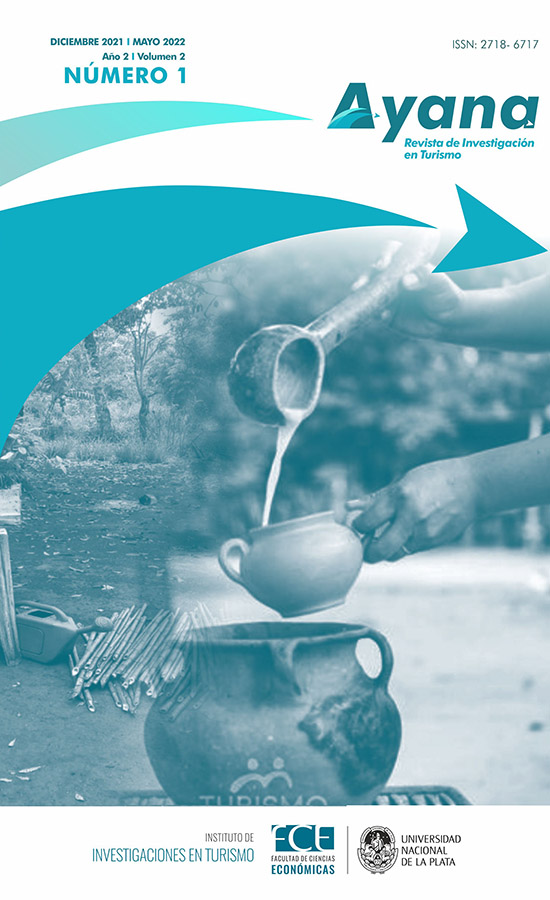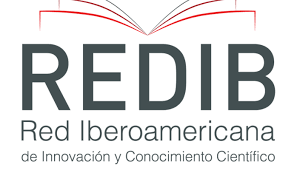Cazón, town of entrepreneurs
DOI:
https://doi.org/10.24215/27186717e014Keywords:
entrepreneurship, heritage, rural villages, rural community tourismAbstract
This paper reports on an Extension Project of the School of Economic Sciences (FCE) of the National University of La Plata (UNLP) during 2018-2019 in the town of Cazón, Saladillo.
Our proposal invites us to think about a management linked to the revaluation of the cultural, productive and environmental heritage of destinations, which adapts the tourism model to the specificities of each territory and, thus, avoids the consequent deterioration of the endogenous values of the local communities. In this context, rural community-based tourism was addressed, where the local population, its producers, artisans and their families exercise a central role in the organization in a self-managed way, with the equitable distribution of their benefits.
The objective was to promote the development of rural towns through rural tourism as a social articulator of community enterprises, encouraging associativity among small entrepreneurs. The methodology was developed in a participatory and horizontal manner, under the workshop modality, generating spaces for the exchange of experiences and knowledge that strengthened its development.
In conclusion, the participatory, supportive, and collaborative processes made it possible for the inhabitants to organize decision-making and strengthen the social and productive fabric by promoting improvements in the living conditions of the community.
Downloads
References
Barrera, E. & Muñoz, R. (2003). Manual de turismo rural para micro, pequeños y medianos empresarios rurales. Serie de instrumentos técnicos para la microempresa rural. Fondo Internacional de Derechos Agrícola. Programa de Apoyo a la Microempresa Rural de América Latina y el Caribe (PROMER), pp. 13-18.
Barrera, E. (2006). Turismo rural. Nueva ruralidad y empleo rural no agrícola. Oficina Internacional del Trabajo, CIN-TERFOR.
Brett, Teddy (1999). Understanding organizations and institutions. In: Robinson, D. & others (eds.) Managing Development: Understanding Inter-Organizational Relationships, 17-48. London: SAGE.
García Canclini, N. (1999). Los usos sociales del patrimonio cultural. En Aguilar Criado, E. et al. (Coords.). Patrimonio etnológico. Nuevas perspectivas de estudio, pp. 6-33. Sevilla: Consejería de la cultura. Instituto Andaluz del Patrimonio Histórico. Consejería de la cultura.
Gómez S, & otros (2016). La construcción del patrimonio local como forma de intervención para descotidianizar el territorio. En 3ras Jornadas de Patrimonio y Desarrollo, pp. 330-340. La PIata: Icomos.
Gómez S. & otros (2019). Aportes de la economía social y del turismo para el desarrollo comunitario del periurbano platense. II Congreso Nacional de Economía Social y Solidaria. Universidad Nacional de Quilmes. Buenos Aires.
Gómez S. & otros (2020). Reflexiones situadas sobre la extensión universitaria, la vinculación territorial y la integralidad. Trayectorias universitarias 6 (11).
Kieffer M. (2018). Conceptos claves para el estudio del Turismo Rural Comunitario. El Periplo Sustentable 34.
Manzanal M. (2002). Instituciones y gestión del desarrollo. Aportes para la construcción de una nueva Argentina. Realidad económica 118, 51-67.
Vinasco Guzmán, M. C. (2017). Marco teórico para la construcción de una propuesta de turismo rural comunitario. Revista de Investigación Agraria y Ambiental 8(1).
Downloads
Published
How to Cite
Issue
Section
License
Those authors who have publications with this journal, agree with the following terms:
a. Authors will retain its copyright and will ensure the rights of first publication of its work to the journal, which will be at the same time subject to the Creative Commons Atribución-NoComercial-SinDerivadas 4.0 Internacional (CC BY-NC-ND 4.0) allowing third parties to share the work as long as the author and the first publication on this journal is indicated.
b. Authors may elect other non-exclusive license agreements of the distribution of the published work (for example: locate it on an institutional telematics file or publish it on an monographic volume) as long as the first publication on this journal is indicated,
c. Authors are allowed and suggested to disseminate its work through the internet (for example: in institutional telematics files or in their website) before and during the submission process, which could produce interesting exchanges and increase the references of the published work. (see The effect of open Access)

























